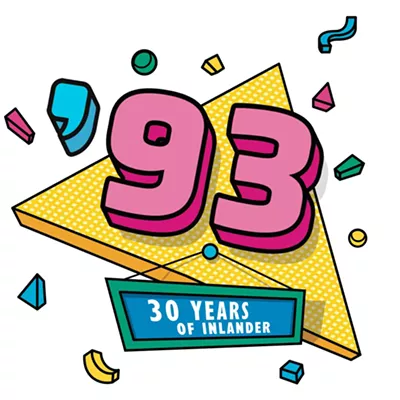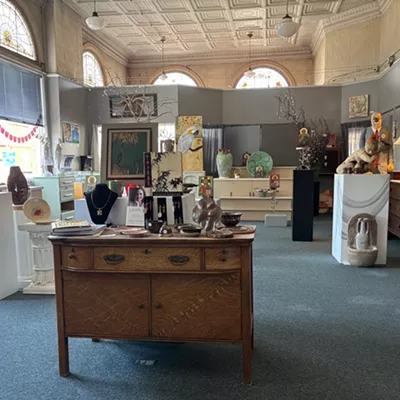It didn't take long for the turn of the century to start a chain of events that would have lasting impacts for the decades to come. Nationally, on Sept. 11, 2001, terrorists hijacked four airliners, crashing two of them into the World Trade Center and one into the Pentagon, and spurring wars and international conflict. Locally, meth was described as "Spokane's drug of choice" in a cover story from April 12, 2001, and a lawsuit centering on the development and funding of the River Park Square parking garage became an ongoing issue. On the bright side, in 2001 operations began on the Stateline Wind Farm, one of the largest farms in the region. Plus, restoration efforts began on Spokane landmarks like the Fox Theater and Davenport Hotel, and funds were devoted to enhancing some of the city's struggling neighborhoods that still stand as thriving hubs today.
IN THE NEWS
The CITY OF SPOKANE VALLEY withstood three failed attempts at claiming its current city status in the 1990s, but on May 9, 2002, the article "Valley Inc." by publisher Ted S. McGregor Jr. outlined the determination behind the campaign. "The drive for Spokane Valley is inspired... equally by the American spirit of self-determination, by business interests seeking more local control and by a simple sense of community pride." Yet during the campaign, many residents seemed impartial on the issue, which was reflected by the 51 percent majority that determined Spokane Valley's status as the eighth-largest city in the state.
CULTURE BEAT
Summer markets and fairs mesh seamlessly with the vibrant and bustling SOUTH PERRY DISTRICT, but two decades ago they served as an attempt to revamp the neighborhood. On July 7, 2001, an article titled "Rejuvenation Street" by Angela Johnson documented the second annual South Perry Summer Street Faire, which featured live music, food and art vendors, and a classic car show. Around that time, the South Perry District received over $300,000 in federal grant funding to transform the area, which had a reputation of having high crime rates. "The resurrection of the area will hopefully turn its reputation around once and for all," wrote Johnson.
ON THE COVER
The Cheney Cowles Museum closed its doors for a two-year renovation, reopening in December 2001 as the NORTHWEST MUSEUM OF ARTS AND CULTURE. The $28 million expansion and restoration project added a second building to the museum and created a gallery space suited to showcasing a myriad of local art installations and traveling exhibitions. These changes took place with the goal of making the museum a cultural destination for locals and visitors alike, giving "Spokane a sense of place," according to the museum's then-CEO Bruce Eldredge.
LOCAL FOLKS
One name that appeared frequently in '01 and '02 was JACK NISBET, a naturalist and historian who has written multiple award-winning books such as Sources of the River and The Collector, focusing on the human and natural history of the Pacific Northwest. Nibset continues to write occasionally for the Inlander, such as his recent story chronicling the history of condors in the region. He and his wife, Claire, have also curated traveling museum exhibits, including David Douglas: A Naturalist at Work.























